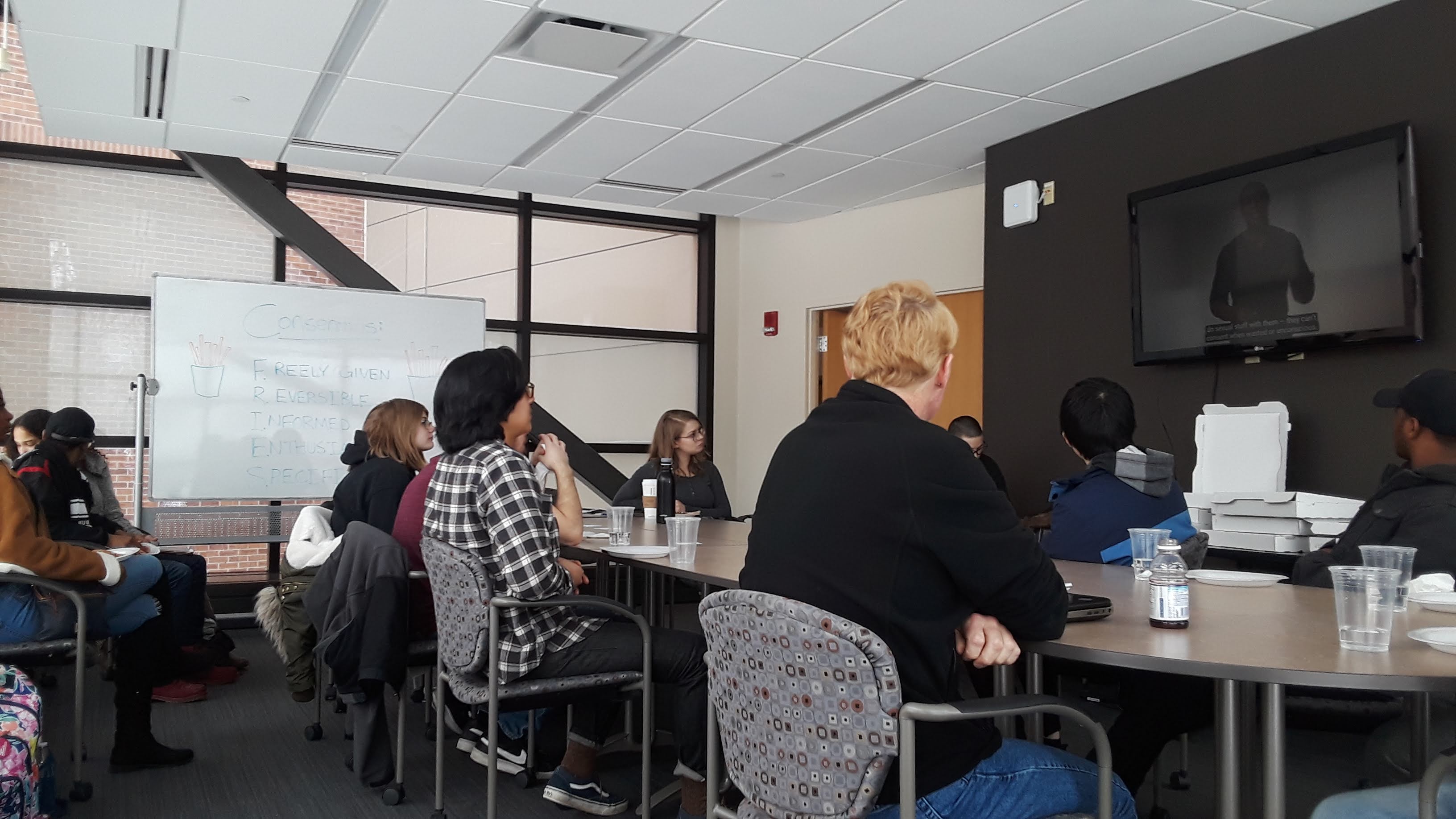
Understanding Sexual Consent?- Workshop
Sexual Assault and Prevention Workshops
Sexual Assault and Prevention Programing (SAPP) provides education and advocacy programs, such as One Love and Sexual Consent Workshops, to help prevent sexual assaults and create boundaries in personal/ intimate relationships.
Sexual assault is the most under-reported of all crimes:
- Approximately one out of three women have survived sexual assault and one out of six women have survived rape.
- Nine out of ten survivors of rape are women.
- Seven out of ten survivors knew their perpetrator before the assault.
- Only 20% or less of women student sexual assault survivors, age 18–24, report to law enforcement.
- Approximately 70% of rape or sexual assault victims experience moderate to severe distress, a larger percentage than for any other violent crime.
- 94% of rape survivors show signs of PTSD.
For more statistics please visit the Bureau of Justice Statistics:https://bjs.ojp.gov/
Research shows that programs which successfully combat sexual violence have grown away from the traditional model that holds women responsible for curbing sexual violence by altering their behavior. Progressive sexual violence prevention programs enlist all students of all genders in positively changing the campus climate by creating a safe place for all students, regardless of sexual orientation, gender identity, race, class, or ability.
Toward that end, SAPP coordinates its workshops content from the the One Love Campaign, designed to help students, faculty and staff know the warning signs of relationship abuse, learn bystander intervention, and feel equipped to seek any additional support needed. Everyone plays a vital role in the campus community. Whatever the circumstances, no one asks or deserves to be sexually assaulted.
Sexual Assault Prevention Resources
What kinds of services are available to help victims of sexual assault or domestic violence? If you are concerned about a friend or classmate being a victim of domestic violence or rape the first step to take is to get informed. Find out what options are available before you attempt to help.
